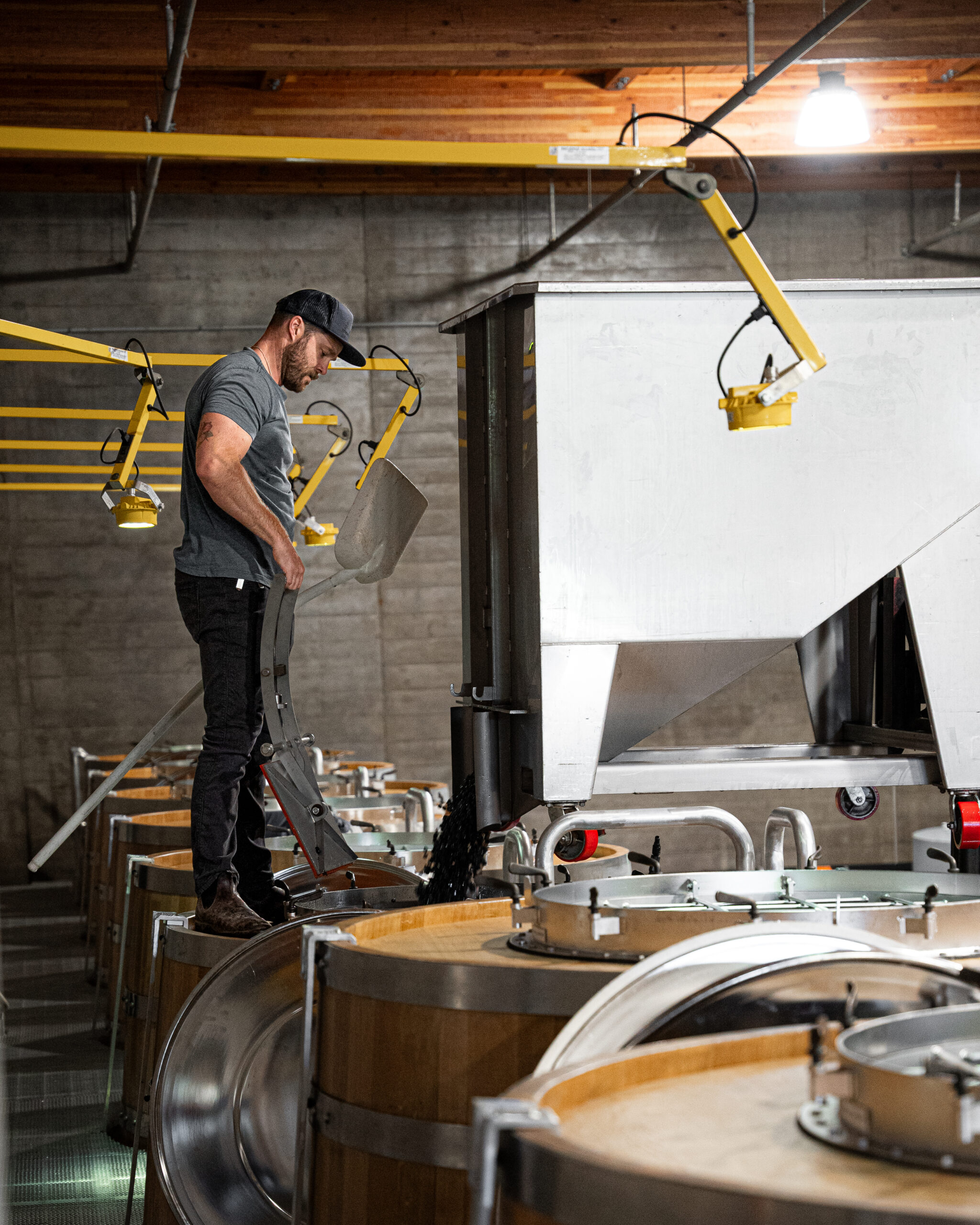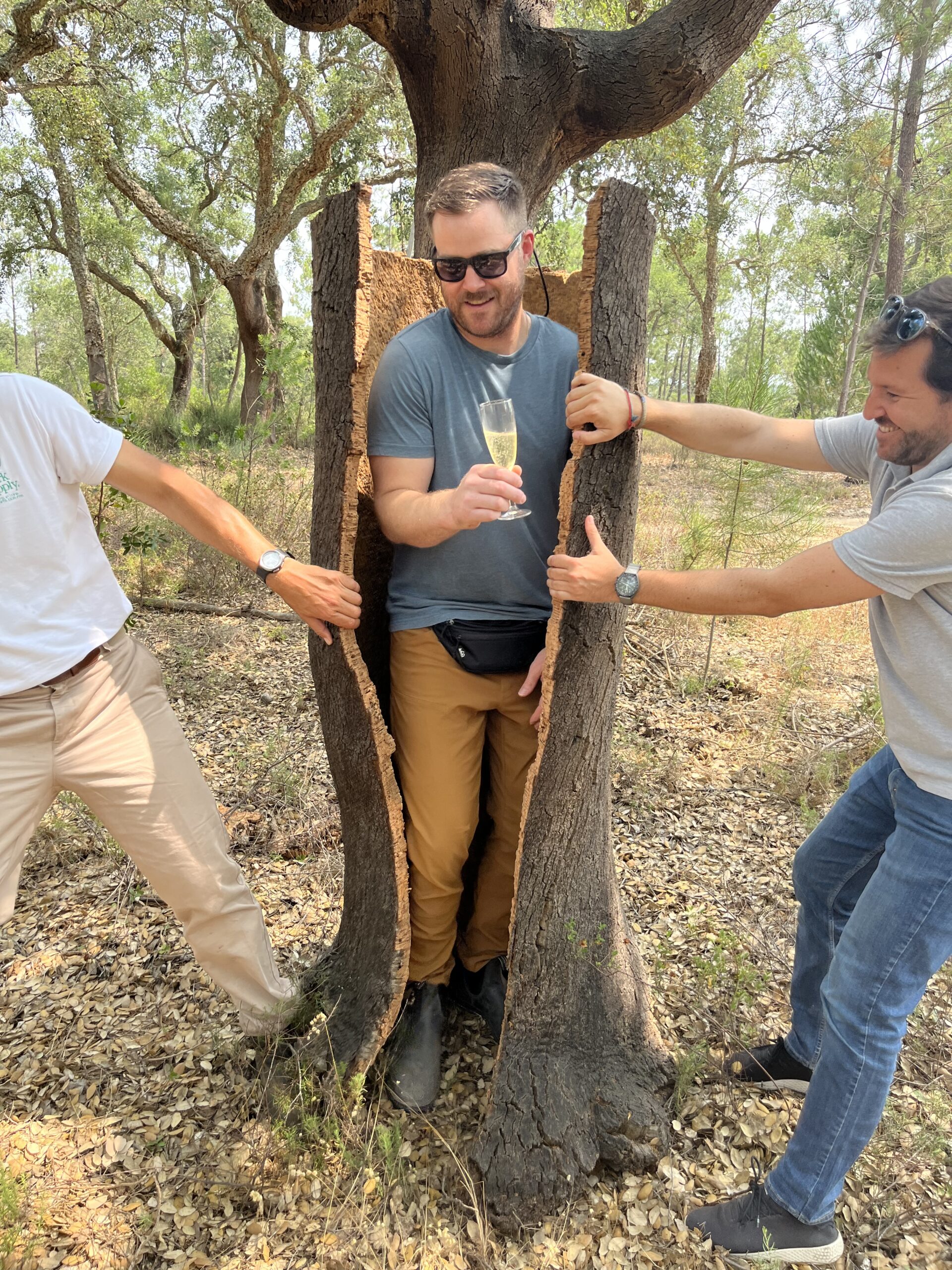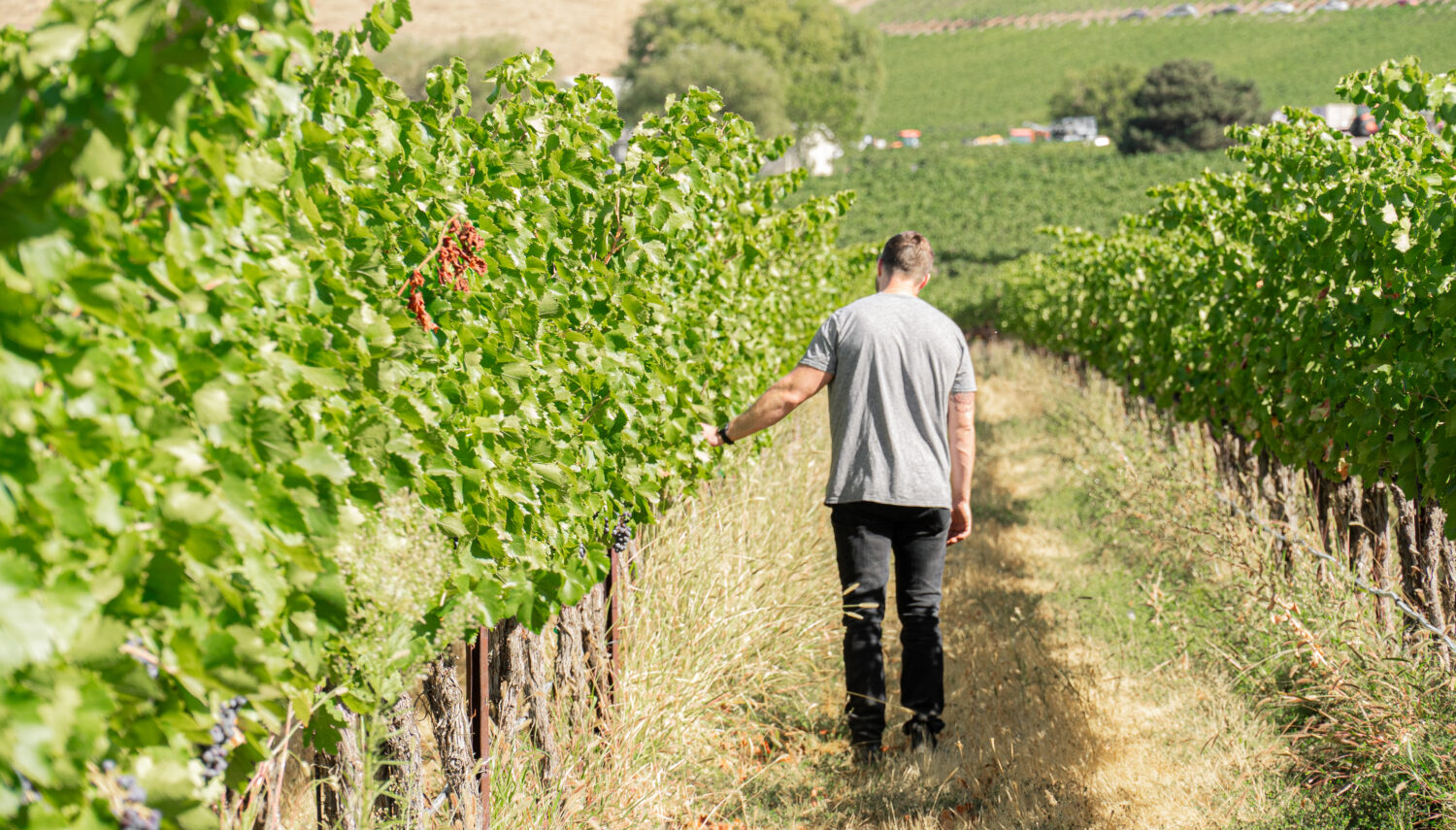Adam Toliver started the EV program in the fall of 2011 and completed it in the Spring of 2013. He is the production winemaker at Corliss Estate and has been there since 2014.
Tess Cantrell (TC): How did you get into wine?
Adam Toliver (AT): I took a beverage management elective at Washington State University during my senior year in college. The class had a “lab” that revolved around tasting and wine education. The wines were often region or variety specific, focusing on terroir and the sense of place those wines embodied. I really enjoyed the tastings and the stories the wine told; I caught the bug. A few years after graduating WSU, I packed up and moved to Walla Walla, took a job at a winery, and enrolled in the EV program. I have been making wine since.

TC: Is there someone in the EV world that you admire, including fellow EV alums?
AT: I admire the people working in the vineyard. They are out there in rain or shine, hot and cold regardless of the weather. They work hard, often in difficult conditions, and don’t get the recognition they deserve. The saying “you can’t make great wine without great grapes,” is true and sometimes they are overlooked in gaining the recognition they deserve.
For fellow alumni, I admire and respect my co-worker Spencer Williams who is the winemaker at our sister winery Tranche. He is a very thoughtful winemaker who pays great attention to detail from the vineyard to bottle. He isn’t afraid to roll up his sleeves and do the dirty work either. We have been working together for ten years and it is awesome.
TC: What’s special to you about working in the wine industry?
AT: Getting to make something tangible that represents a specific time and place that others get to enjoy. There is only one grape harvest a year and the wines that come from those grapes have their own story to tell. In addition, the person drinking the wine can also relate to that specific time. It can be from a vintage that someone got married, had a baby, moved to a new place etc. They purchase a specific vintage, open it ten years later and it evokes memories of that time. It’s cool to have a hand in that.
TC: What is your favorite part of your job?
AT: Harvest, or should I say completing harvest. Every vintage is different and has its own trials and tribulations. Some vintages are a sprint, some are a marathon. Getting to the end and seeing what you and your team accomplished is a very satisfying feeling.
TC: What are some of the challenges you’ve faced in the industry?
AT: Covid/post covid was challenging. It was difficult to hire people, the global supply chain nearly shut down, prices on everything skyrocketed, you had to put in orders with huge lead times, your goods would sit out on a boat for months because the ports were backed up. It took a lot of adaptation to keep the process moving.
TC: What do you think differentiates and excites you about Washington wine?
AT: I think community and value differentiate Washington from a lot of other growing regions. The wine community is tight knit here and everybody wants each other to succeed. You can also get great wine for an accessible price which isn’t always true in other places.
It is exciting to see people exploring and pushing boundaries in Washington. We are still one of the younger wine regions in the world. To keep growing and improving we need people to explore and push the envelope to untap our fullest potential. I think we do a good job of this.
TC: How do you foresee climate change or social issues affecting the local industry in the next few years?
AT: Climate change is not only affecting the ability to grow grapes, but agriculture in its entirety. It may not seem that much hotter or colder on any given day, but extreme weather events are more intense and happen more frequently than ever before. With a crop like grapes, you only get one shot to grow and ferment them. If something goes sideways, you are out of luck until the next growing season. Unfortunately, climate change and extreme weather events aren’t going anywhere so it is important to take necessary measures in the vineyards and adapt appropriately.
TC: What are some up-and-coming trends in wine that you’re following?
AT: I went to Portugal and spent some time in the Douro Valley last summer. The vineyards were insane; trellised on steep slopes with incredible views. The wines were excellent and inexpensive. I think there will be a rise in demand for regions that make high-quality wine at an accessible price. They will and should be all over the place. Plus, it is fun to try obscure varieties from regions you’ve never had.
TC: What advice can you share with future EV graduates?
AT: Don’t be scared to take chances. I think this embodies the spirit of growing grapes and making wine.
Also, travel and do a vintage or two abroad. You won’t regret it.



Join the Conversation